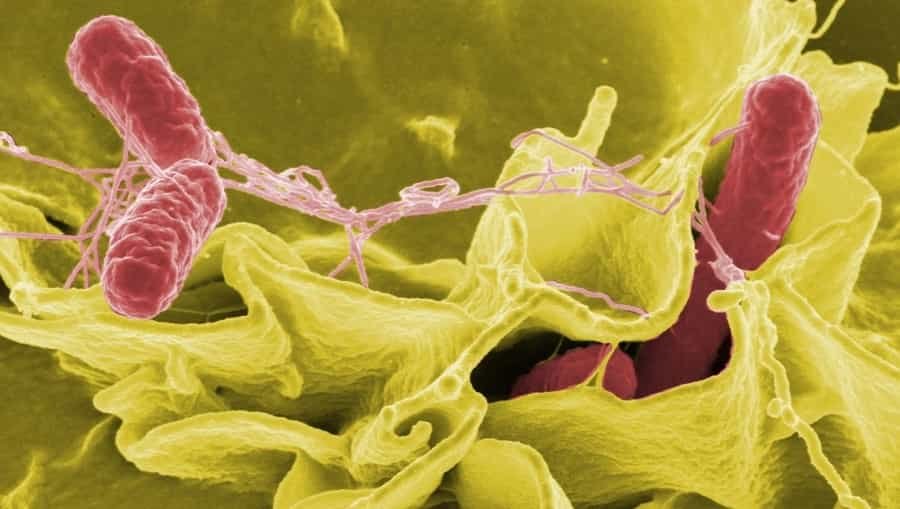7 Octopus Health Benefits, Nutrition and Potential Side Effects

Octopus is a popular seafood delicacy that is frequently served in sushi, stir-fries, and stews.
Did you know, however, that octopus is not only tasty, but also extremely nutritious? Octopus is high in protein, omega-3 fatty acids, and important vitamins and minerals.
Octopus is thought to offer various health advantages because to its high nutritional value, including lowering the risk of heart disease and boosting cognitive function.
But, like with any meal, ingesting octopus may have possible negative effects such as allergic responses or contamination with hazardous poisons.
Hence, in this article, I’ll go through the health advantages, nutritional composition, and potential negative effects of octopus so you can determine whether you should eat it.
Octopus Nutrition Values
Before we jump into the octopus health benefits, it is better to learn about octopus nutrition value, since its health benefits derive from its high nutrient profile.
- Nutritional values of frozen Octopus (per 100 grams)
- Data for this table were obtained from USDA’s Food Database.
- The last column shows the Recommended daily intake values of each nutrient based on a 2,000 calorie diet.
| NUTRIENT | AMOUNT | RDI |
|---|---|---|
| Calories | 226 Kcal | |
| Protein | 13.2 g | 50 g |
| Total Fat | 13 g | 65 g |
| Cholesterol | 43 mg | 300 mg |
| Carbohydrates | 13.4 g | 300 g |
| Fiber | 0 g | 25 g |
| Sugar | 0 g | |
| Sodium | 518 mg | 2300 mg |
| Potassium | 290 mg | 4700 mg |
| Calcium | 55 mg | 1000 mg |
| Iron | 4.92 mg | 18 mg |
| Magnesium | 28 mg | 400 mg |
| Phosphorus | 164 mg | 1000 mg |
| Potassium | 290 mg | 4700 mg |
| Zinc | 1.43 mg | 11 mg |
| Copper | 0.36 mg | 0.9 mg |
| Selenium | 37.2 mcg | 55 mcg |
| Choline | 56.3 mg | 550 mg |
| Vitamin A | 32 mcg | 900 mcg |
| Vitamin B1 (Thiamine) | 0.165 mg | 1.2 mg |
| Vitamin B2 (Riboflavin) | 0.102 mg | 1.3 mg |
| Vitamin B3 (Niacin) | 2.54 mg | 16 mg |
| Vitamin B5 (Pantothenic Acid) | 0.5 mg | 5 mg |
| Vitamin B6 | 0.259 mg | 1.7 mg |
| Vitamin B12 (Cobalamin) | 13 mcg | 2.4 mcg |
| Vitamin C | 3 mg | 90 mg |
| Vitamin D | 0 IU | 600 IU |
| Vitamin E | 2.83 mg | 15 mg |
| Vitamin K | 13.1mcg | 120 mcg |
*Raw octopus and fresh octopus may provide different nutrients when eaten.
Octopus Health Benefits
Here are the most important octopus health benefits you should know. If you are looking for baby octopus health benefits note that it doesn’t have any different health benefits of those of an adult octopus.
Octopus is High in Nutritional Value
Eaten octopus is packed with nutrients. For example it is loaded in protein and low in calories, making it an excellent choice for people trying to lose or maintain a healthy weight or for those of you who want to get a leaner physique.
Octopus is also high in omega-3 fatty acids, which are healthy for your heart (more on that below). Moreover, octopus is high in vitamins and minerals such as zinc, copper, and selenium.

Octopus Is Good For Your Heart
Octopus is high in omega-3 fatty acids, which are considered “good fats” and have been linked to a variety of heart-healthy characteristics. Omega-3 fatty acids help reduce blood pressure and prevent plaque development in arteries, lowering stress on the heart.
A diet high in omega-3 sources, such as octopus and other forms of fish, has also been associated to a decreased risk of some cancers, cognitive function protection, and a healthy gut microbiota.
Octopus Helps in the formation of hemoglobin
Octopus is also rich in copper and iron.
Copper and iron aid in the production of hemoglobin and are components of several enzymes.
Vitamin B6 functions by converting tryptophan, an amino acid, into niacin and serotonin, both of which are essential for mental wellness. It also aids in the production of insulin, antibodies, and hemoglobin.
Iron also contributes to the red blood cells red color. It aids in the transfer of oxygen to the body’s cells. Because humans lose blood when they are injured, additional hemoglobin is required. Women lose blood during menstruation, increasing their risk of anemia.
Ashwagandha Extract Tablets | 300mg | 12% Withanolides
High quality Ashwagandha with at least 12% withanolides – ashwagandha’s active ingredient.
300 mg per tablet. As a dietary supplement, take 1 Ashwagandha Extract tablet daily.
Servings per bottle: 90 Servings or 180 Servings
⭐⭐⭐⭐⭐ | 4.9 (10 reviews)
Octopus is a lean protein source
Octopus is a healthy source of lean protein that is low in calories, fat, and carbohydrates but high in amino acids (and thus protein), trace minerals, and micronutrients like vitamins A, B12, and iron, making it an ideal food choice for those looking to increase their protein intake without compromising on taste.
Octopus also has a unique flavor and texture, making it an excellent addition to meals for those who want to mix up their mealtime routine.
Octopus may have Antidepressant Properties
According to Healthline, persons who consume reasonable – but not excessive – amounts of seafood generally score lower on depression tests in particular groups. Furthermore, it seems that the proportion of omega-6 to omega-3 fatty acids in the blood is also a variable. [1]
Whilst a diet that is high in omega-3 fatty acids from seafood has been associated to lower depression risk, there isn’t generally sufficient data to establish that omega-3 supplements successfully cure persons who are already depressed.
However, it’s not simply the omega-3s in octopus that contribute to its antidepressant benefits.
One research study looked examined the quantities of 12 distinct antidepressant elements in meals, including omega-3s, vitamin B12, selenium, iron, zinc, and others. In the list of top antidepressant foods, octopus was rated sixth.

Octopus can help Cognitive Health
Octopus has a log of magnesium (Mg2), a mineral that many people can not get enough of from their daily diet.
Magnesium has been shown in studies to assist healthy brain function, memory, and learning processes and generally regulates cognitive function.
Octopus has Anticancer Properties
According to this research article, published in the journal Evidence-Based Complementary and Alternative Medicine, organic extracts from octopus contain compounds with antimutagenic and antiproliferative properties, reducing the mutagenicity of AFB1 and proliferation of cancer cell lines.
Potential Octopus Side Effects
Although Octopus is packed with vitamins and minerals there are some potential side-effects of consuming to much of it that you need to consider.
Risk of Poisoning
The primary concern when consuming octopus is the risk of food poisoning. Octopus can be high in bacteria, and improper preparation or storage can lead to foodborne illness.
To reduce this risk, follow careful food safety practices when preparing and storing octopus.
If consuming raw or undercooked octopus, make sure to carefully source the product to ensure it has been properly handled and stored.

Seafood Allergies
People with seafood allergies should exercise caution when consuming octopus.
Allergic reactions may occur, and even if a person has not experienced a reaction previously, it is possible that an allergic reaction could occur in the future.
If you are allergic to seafood, consult your doctor first before try eating octopus.
Digestive Issues
Some people may experience digestive issues when eating octopus. Eating too much may cause cramps, bloating, and intestinal distress.
Eating too much at one time can also lead to an upset stomach or nausea.
To avoid these issues, start by eating small portions of octopus and increase the serving size gradually over time.
Risk of Mercury Exposure
In some cases, octopus can contain high levels of mercury (due to see poisoning) which can be toxic if consumed in large quantities.
Freshwater octopus can contain more mercury than other varieties, and should be consumed in moderation.
It is also important to understand that mercury levels can vary depending on the source of the octopus, so it is best to get your octopus from mercury free waters.
High in Sodium
Sodium from diet is required for normal neurological function, but excessive consumption can lead to cardiac issues. Octopus has a lot of salt, so consume it in moderation if you’re limiting your sodium consumption.
Just to give you some more context around this, without adding any additional salt during the cooking process, one serving of octopus might contain up to 25% of the DV for salt.
This may not be a big deal for some folks. But, if you are salt-sensitive, it may influence your blood pressure and increase your risk of heart disease.
High in Cholesterol
A 100 grams portion of octopus has almost 20% of your daily cholesterol allowance.
For example 100 grams of octopus have 43 mg of cholesterol while the recommended daily allowance is 300mg.
Now, although your body requires cholesterol to produce healthy cells, having too much might raise your risk of heart disease.
Facts About Octopuses
Before closing this article, here are some facts about octopuses that I think it is good to know.
Bottom Line
Overall, octopus is a healthy food that can provide a variety of health benefits if you add it on your diet. It is high in protein, low in fat, and it is packed with essential vitamins and minerals.
However, it is important to be aware of potential side effects that someone may experience such as allergies, food poisoning due to bad storage from your local fish vendor or supermarket, the risk of mercury poisoning etc.
With proper preparation and knowledge though, octopus can be a safe, nutritious and delicious addition to your diet.
Read Next




